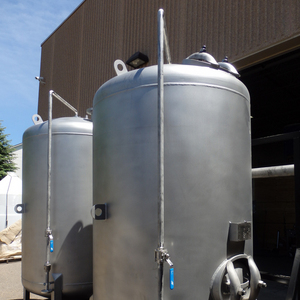U.S. Water announces launch of Ethanol Final Filter

U.S. Water Services Inc.
September 11, 2014
BY U.S. Water Services Inc.
U.S. Water Services Inc., the leading national provider of integrated solutions for water treatment, introduces the new U.S. Water Ethanol Final Filter. This bolt-on, mechanical/chemical system is unique to the industry, improving final fuel quality through the removal of both existent and potential sulfate. In addition to sulfate removal, the Ethanol Final Filter addresses issues of color, turbidity, acidity, pHe, chloride and iron.
Sulfate can come from many sources, including excess scrubber additive and sulfuric acid, during the production of ethanol. Some sulfur is apparent at time of manufacture – this is called existent sulfate. During storage or shipment, other emergent sulfur can manifest through oxidation, thereby contributing to potential sulfate. The materialization of potential sulfate can cause a product that initially met existent sulfate specification levels to exceed the maximum permissible level of 4ppm at time of delivery.
“What makes U.S. Water’s Ethanol Final Filter truly unique,” states Dennis Pasko, vice president of U.S. Water’s ethanol process technologies team, “is the fact that it addresses both existent and potential sulfate, reducing sulfate at the manufacturing site as well as the ability for it to manifest at delivery.” U.S. Water’s Ethanol Final FIlter is an effective, cost-conscious solution that can be used by producers to enable compliance with their quality assurance program; or as a mobile unit that can be deployed to bring off-spec ethanol back in alignment with prevailing fuel standards.
Advertisement
Advertisement
Related Stories
The U.S. Energy Information Administration maintained its forecast for 2025 and 2026 biodiesel, renewable diesel and sustainable aviation fuel (SAF) production in its latest Short-Term Energy Outlook, released July 8.
XCF Global Inc. on July 10 shared its strategic plan to invest close to $1 billion in developing a network of SAF production facilities, expanding its U.S. footprint, and advancing its international growth strategy.
U.S. fuel ethanol capacity fell slightly in April, while biodiesel and renewable diesel capacity held steady, according to data released by the U.S. EIA on June 30. Feedstock consumption was down when compared to the previous month.
XCF Global Inc. on July 8 provided a production update on its flagship New Rise Reno facility, underscoring that the plant has successfully produced SAF, renewable diesel, and renewable naphtha during its initial ramp-up.
The USDA’s Risk Management Agency is implementing multiple changes to the Camelina pilot insurance program for the 2026 and succeeding crop years. The changes will expand coverage options and provide greater flexibility for producers.
Upcoming Events










